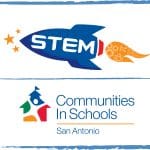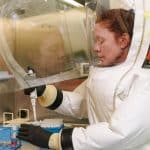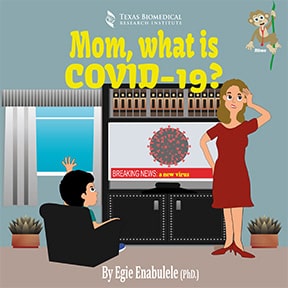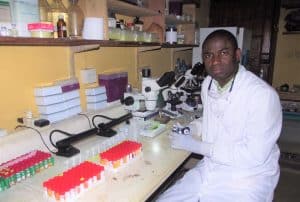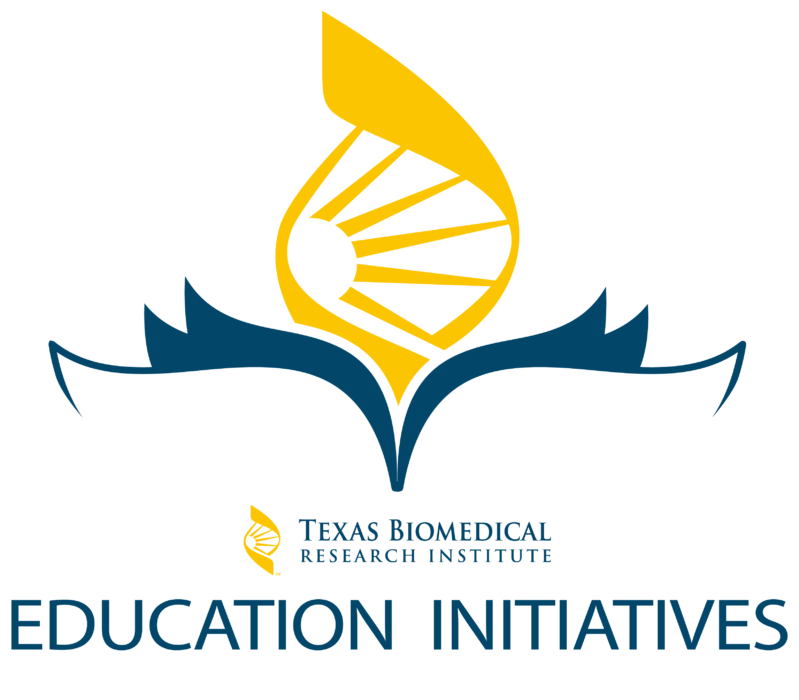
K-12 Science That Inspires
K-12 Educational Resources include curricular activities which connect classroom content with current science issues with a focus on biomedical research and infectious diseases. Our curricular activities are multi-grade level and aligned with education standards, including the Texas Essential Knowledge and Skills (TEKS) and the Next Generation Science Standards (NGSS).
Curricular Resources
__________________________________
-
Classroom to Career
Meet the people who work at Texas Biomed. It takes a team to carry out the important science research conducted at Texas Biomed. These short stories highlight personal journeys into a variety of careers, from librarian to animal care specialists to veterinarians to research scientists. Each story includes discussion questions and engaging activities designed to connect the classroom to careers.
-
Curricular Units: Lessons and Activities
Texas Biomedical Research Institute is pioneering and sharing scientific breakthroughs to protect you, your families and our global community from the threat of infectious diseases. The Texas Biomed education program supports this mission through free, downloadable curricular units which engage students in critical thinking, model making, and hands-on lab experiences connected to current science issues. Curricular units consist of multiple lessons and each lesson contains activities. Each unit is aligned with education standards (TEKS and NGSS) and provide instructional flexibility. Units and lessons can be implemented in their entirety or activities can be used as stand-alone explorations to support existing curriculum.
Virtual Resources
_____________________________
-
STEM Space At Home: Virus Protection
In partnership with Communities in Schools of San Antonio view the STEM Space At Home: Virus Protection video and join in on the activity! Here you will learn about the microscopic world of “microbes” and COVID-19 from a scientist Hilary Staples who works with the virus right here at Texas Biomed.
-
What Does Biosafety Level (BSL) Mean?
What does Biosafety Level laboratory mean?
Texas Biomed is home to BSL2, BSL3, and BSL4 laboratories. Biosafety levels correlate to the safety protocols needed to work inside a lab. These protocols are determined by the specific pathogen or microbe being studied within a lab. The BSL2 is the lowest level of lab containment and the BSL4 is the highest. These protocols allow scientists to conduct research on dangerous pathogens such as Ebola, Malaria, COVID, and tuberculosis safely and efficiently.
Check out our High Containment Video on YouTube!
-
Virtual Book: “Mom, what is COVID-19?”
SPECIAL TEXAS BIOBOOK FEATURE
“Mom, what is COVID-19?”
Written and produced by Texas Biomed scientist Dr. Egie Enabulele. A simple way to learn about COVID-19 and how to protect yourself. Meet the Author
Egie Elisha Enabulele, Ph.D. is a postdoctoral scientist at The Texas Biomedical Research Institute in Dr. Tim Anderson’s laboratory. As a Molecular Parasitologist, Dr. Eneabulele’s research is focused on tropical diseases such as Schistosomiasis, a parasitic disease that affects more than 200 million people in Asia, Africa and South America. He holds a Ph.D. in Research Biology from the School of Life Sciences from Kingston University London, UK. As a scientist and a father, Dr. Enabulele sees the need of explaining challenging concepts in simple terms. He has a passion for community outreach which he attributes it to his training as a doctoral student. He learned the need to cut through scientific jargon to better educate larger communities in a way for science to be easily understood and appreciated.
Dr. Enabulele has written several other children’s books like “Two eggs which can make you sick” and “Not spaghetti, they are worms!”and has introduced them to students in Africa.
